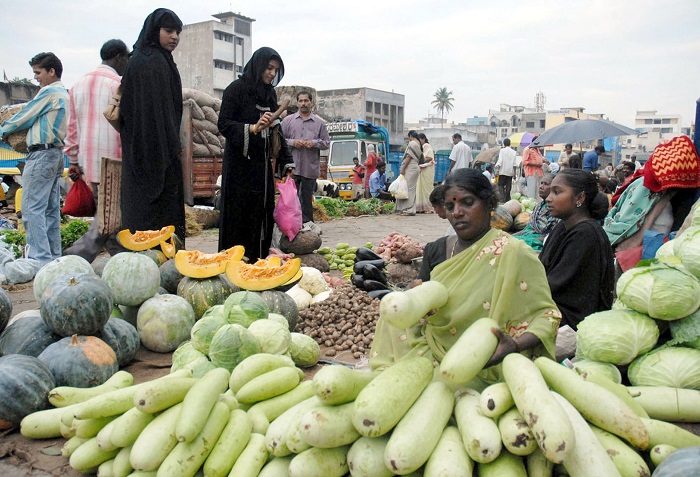New Delhi, The sharp rise in onion prices and consequent rise in food inflation has disturbed the math for policy makers and the budget of millions of middle and lower class Indian households.
But the recent increase in food prices has not resulted in rural wage growth. According to data by the Centre for Monitoring Indian Economy (CMIE) that farm profitability and growth has been weak across major food grains like rice, wheat, moong and tur.
Data shows that the compound annual growth rate (CAGR) from 2015 to 2019 has declined for moong and tur by 34.8 per cent and 9.9 per cent respectively. CAGR grew by a mere 0.4 per cent for rice, but 7.8 per cent for wheat.
“Over the past few years, barring a few crops, farm sector profitability has been stagnant as prices have remained muted given a fair increase in production,” a Kotak report said.
The report highlighted that the recent increase in the prices of some vegetables and pulses has been on the back “of supply shocks which may induce a price effect, but are unlikely to translate into an income effect”.
“Real rural wage growth has also been pretty stagnant,” the report added.
Stagnation in farm income has been a historic problem. According to a report by NITI Aayog, it took 22 years, from 1993-94 to 2015-16, for the real farm income to double.
Besides, farmers’ income growth has been highly disproportionate in India. While states like Jharkhand, Odisha and Bihar have struggled; Punjab, Kerala and Haryana have seen comparatively better growth over the years.
According to the last official NSSO (now NSO) Consumption Expenditure Survey, 45.3 per cent of the farm households in Jharkhand were below the poverty line.
Market researcher Nielsen had earlier said that rural household consumption slumped to a seven-year low in the September quarter, widely interpreted as a sign of the prolonged agrarian distress and near-stagnant rural incomes.









